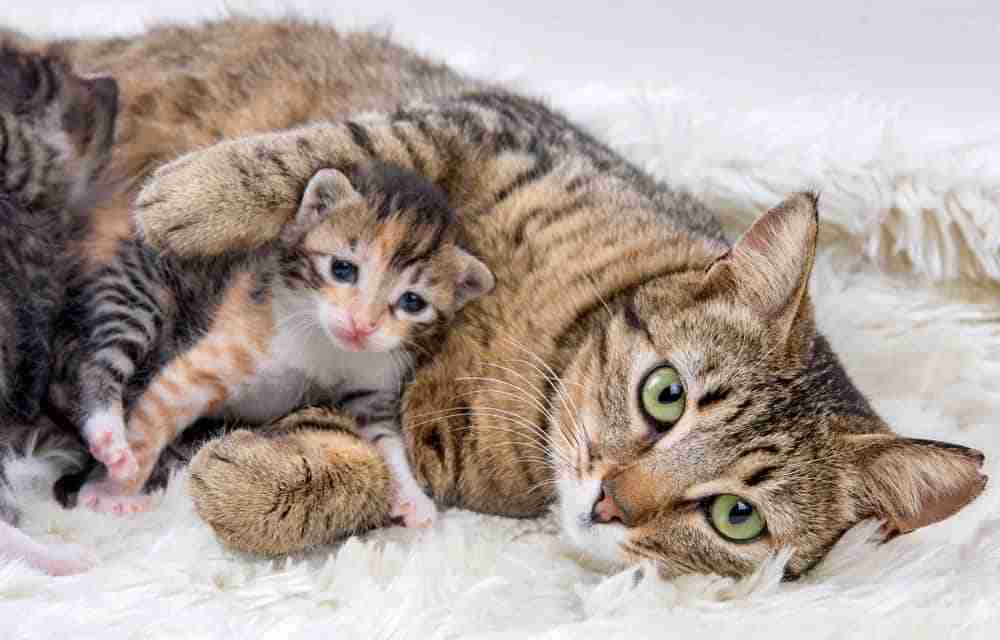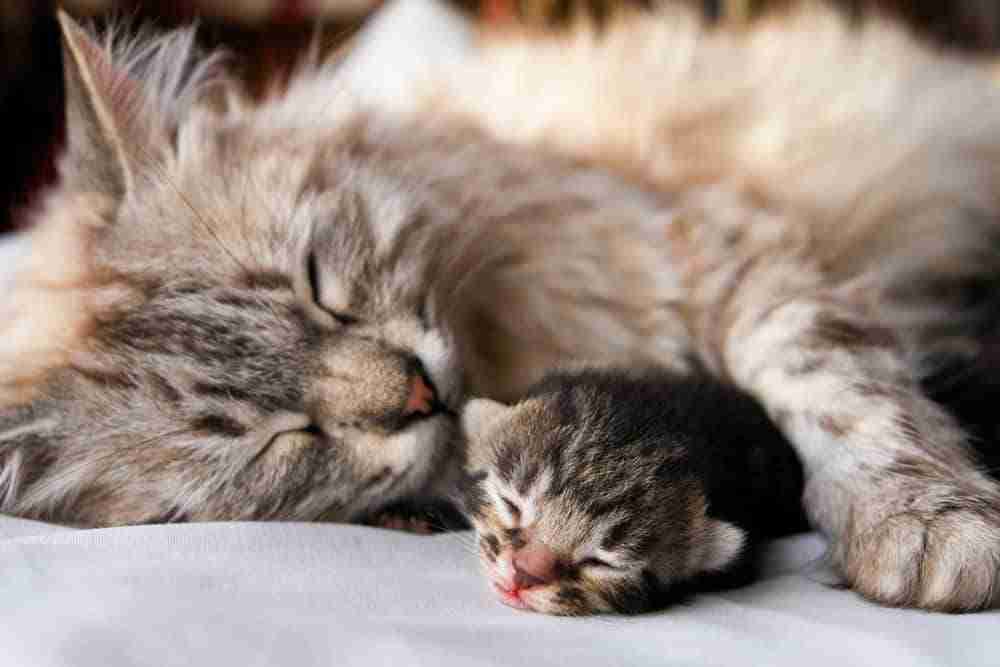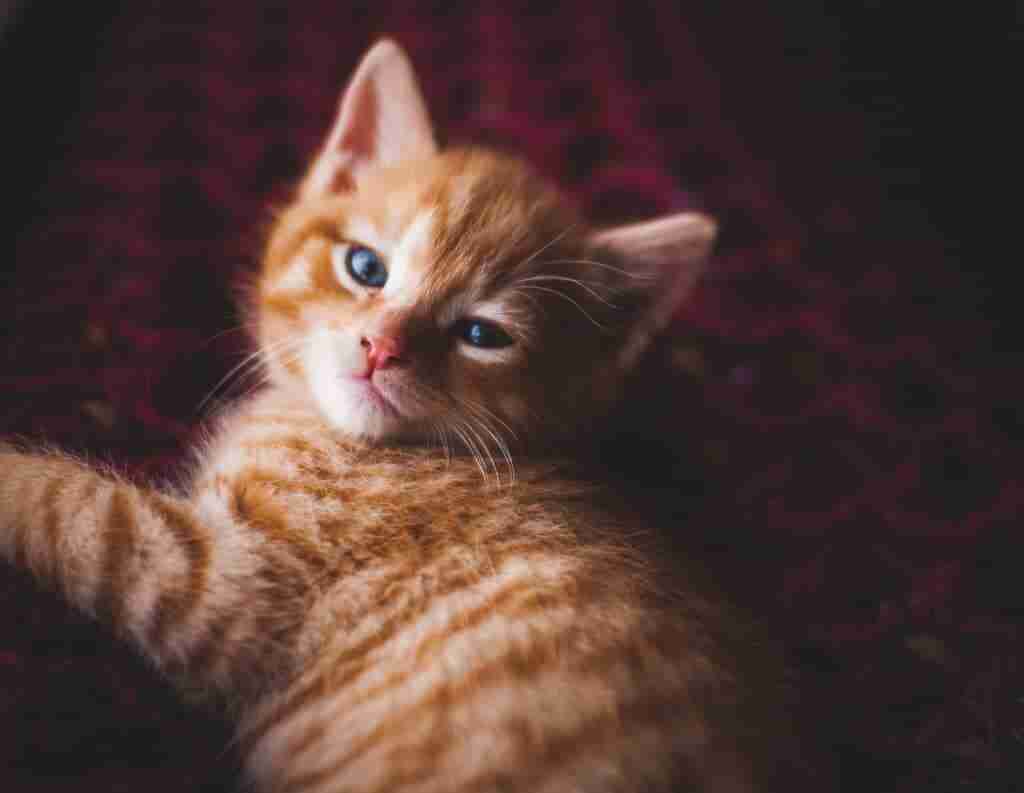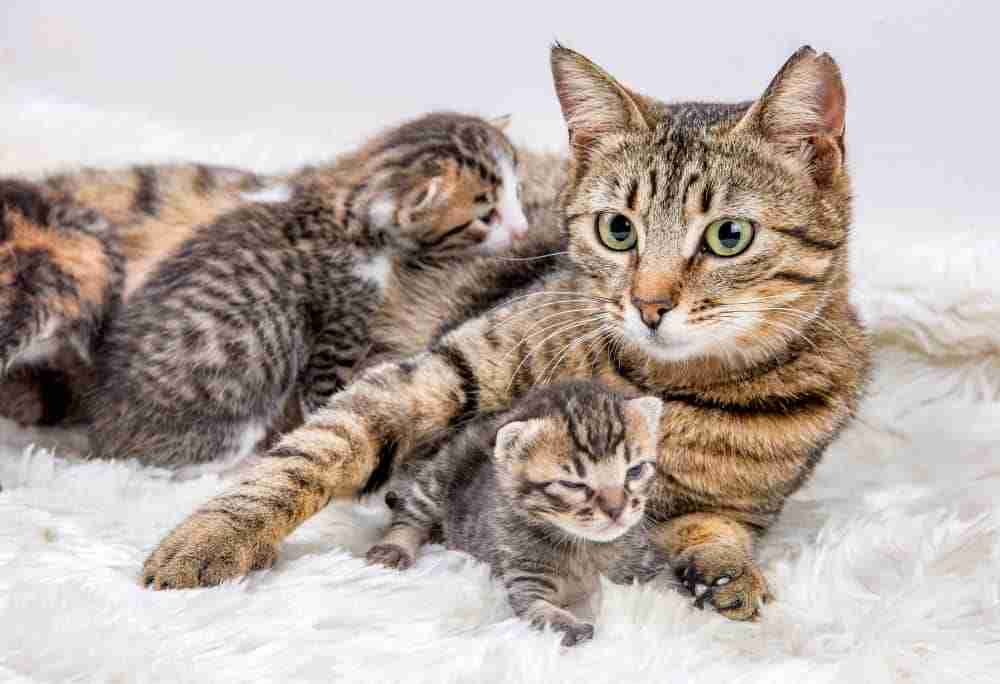Should I let my cat move her kittens? In most cases, you should. Mother cats have great maternal instincts compared to many animals. Your mama cat is acting naturally out of instinct and may be able to sense environmental disturbances that you cannot. Let her get on with it.
Read on to learn more.
Should I Let My Cat Move Her Kittens?
In most cases, your cat won’t leave her kittens for long or move her kittens in the first 14 days after birth. At this stage, the kittens are blind and deaf and not very aware of the world so a move is potentially very hazardous to the kittens.
However, in extreme circumstances, a mother cat will relocate kittens even at this young age if something is “off” with the location they are at.
After the two-week mark, when the kittens have developed – can hear and see, it is entirely normal for a cat to move her kittens – so, you should allow her to do so if that is what she wants.
Let’s have a look at why she might choose to move her kittens to the wild or in your home so we can understand what is going on and what is normal.

Why Does My Cat Move Her Kittens?
Your cat has strong maternal instincts and, even if she has given birth in the safety of your home, may decide that a move is essential to the well-being of her kittens. There are a number of specific situations and reasons that prompt a litter move.
Let’s check them out here :
Danger
If your mama cat senses or suspects her kittens are in physical danger from predators or anything that can cause physical harm she will move the kittens.
If you have a pet dog that is sniffing around the locality – she will fear discovery and look to move on. If the area where she is raising her litter has too much traffic around or the area – she will look for somewhere quieter.
Any situation that potentially signals danger to deaf and blind kittens will motivate a move, even before the kittens have reached the twelve-week mark.
Temperature
Temperature can be a big concern for the mother cat. Kittens typically need a higher temperature for survival than a mature cat. They can often be seen huddling together for warmth.
If the mother cat feels the temperature is too cold she will look for a better location with a more suitable temperature. Kittens often need an ambient temperature of 80 degrees to maintain a steady body temperature. If the area is too hot or too cold a move to a more suitable location will occur.
Overstimulation
Too bright, too windy, too noisy? Once your kitten’s senses come on line at the fourteen-day mark and they can see and hear, your cat is going to be aware that overstimulation may be a problem.
Your kittens are new to the world and the first days they can see and hear are going to be quite an experience if there is too much going on nearby. If the area is not quiet enough and is too stimulating she will move her kittens to a more relaxed spot so they can adjust their senses and get used to the world at large.
Cleanliness
Generally, a mother cat will relocate after two weeks because the immediate living area is perceived to be too dirty or lacking in overall cleanliness and freshness.
If the area is not clean enough to start with then this can cause a problem and give rise to a premature move.
Toileting facilities and eating facilities may be too close to the mother cat’s initial location, and simply too many signs of herself and the kittens may be around. A clean spot, dust-free, scent-free, and away from the original birthing spot makes sense and feels cleaner. This increases motivation for the two-week move.

Avoidance Of Male Cats – Privacy
Your cat will move her litter of kittens if they do not have enough privacy.
At one level this is really restating the reasons for moving that arise from perceived danger and overstimulation, but a separate factor we have not touched upon is that your cat will be looking to avoid male cats at this time.
A male tomcat is ready and willing at any time when a female cat is in heat.
A female cat that has just given birth does not want a Tomcat sniffing around and disturbing herself or the kittens in the early stages of the litter’s life.
Generally speaking, this is not because of any perceived problem with the male necessarily attacking the kittens on purpose. It is simply due to the fact a single-minded male cat is likely to have one motivation in mind and is likely to be an unnecessary hassle.
Illness
Unfortunately, not all kittens pull through the early stages of life or the first few days. Sometimes the litter will have a runt. In both these instances, the mum cat may choose to move the litter away.
A runt kitten may be abandoned. The mother may move the rest of the litter away from a runt if it is determined to be too much of a drain on resources or is identified as having physical issues that may reduce optimal development going forward. Basically, if she perceives the kitten to be ill she may decide to abandon the kitten and the area and relocate healthy kittens to a new area.
Likewise, if a kitten simply fades and dies the mother cat may move the litter to a new area to avoid disease or if she feels the death was caused by the environmental conditions locally she may move to save the rest of the kittens.
Sometimes, when a kitten dies, rather than move the litter, she might either eat the dead kitten, present the kitten to the cat guardian for disposal or take the dead kitten and hide it to reduce interaction with predators or to increase the risk of disease in the remaining litter. Nice.

Space
As time goes by, kittens get larger and need more space. What might have been a superb location for small and immobile kittens in the initial period of their life can become a little too small an area as they physically grow.
Your mamma cat may be moving kittens to an area where they have more space to grow into.
Final Thoughts
As we can see there are some pretty specific and smart reasons why a mother cat will move her kittens. And it is completely natural for her to have these instincts and act on them.
Should I let my cat move her kittens? I think it is clear that you should just let them get on with it and monitor the situation. Try to aid her to get the best out of the location if you can by keeping things private and quiet, but otherwise trust in her instincts, especially if she has successfully raised kittens previously.
